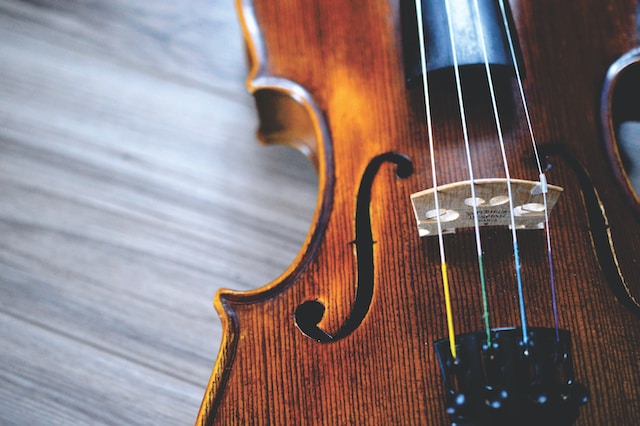Music has been a part of human culture for thousands of years. The development of music can be traced back to the earliest civilizations, and over time, different genres of music have emerged. In this article, we will take a look at the history of early music, exploring the different genres, instruments, and notable composers from various periods.
The Origins of Music
The origins of music are shrouded in mystery, as there are no written records of music from the earliest times. However, it is believed that music originated in Africa, with the use of percussion instruments made from animal hides and bones. As humans migrated to other parts of the world, they brought their music with them, which led to the development of new genres and instruments.
Medieval Music
Medieval music refers to the music of the Middle Ages, from the 6th to the 15th century. During this time, music was primarily written for the church and was heavily influenced by religious themes. Gregorian chant, a form of plainchant, was the dominant style of music during this period. It was performed by monks and consisted of unaccompanied singing in Latin.
Renaissance Music
The Renaissance period, from the 14th to the 17th century, saw a resurgence of interest in the arts, including music. The development of polyphony, the use of multiple independent melodies, was a defining characteristic of Renaissance music. Composers such as Josquin des Prez, William Byrd, and Giovanni Pierluigi da Palestrina were prominent figures during this period.
Baroque Music
The Baroque period, from the 17th to the early 18th century, was characterized by elaborate ornamentation and dramatic contrasts. Baroque music was often written for the church and the royal courts, with composers such as Johann Sebastian Bach, George Frideric Handel, and Antonio Vivaldi producing some of their most famous works during this period.
Classical Music
Classical music, which spanned from the mid-18th to the early 19th century, was marked by a shift towards simplicity and clarity in composition. Composers such as Wolfgang Amadeus Mozart, Ludwig van Beethoven, and Franz Joseph Haydn are considered some of the greatest composers in history and produced some of the most iconic works of classical music.
Early Instruments
Throughout the history of early music, various instruments have been used to create different sounds and effects. Some of the earliest instruments include the lyre, a stringed instrument used in ancient Greece, and the shofar, a trumpet made from a ram’s horn used in Jewish religious ceremonies. Other notable instruments include the lute, the harpsichord, and the organ.
Notable Composers
The history of early music is rich with notable composers who have made significant contributions to the genre. Some of the most influential composers include Hildegard von Bingen, a German composer and mystic who lived during the medieval period, Johann Sebastian Bach, a prolific composer who produced works in the Baroque period, and Wolfgang Amadeus Mozart, a child prodigy who became one of the most famous composers of the classical period.
Influences on Modern Music
The influence of early music can be heard in modern music, with many composers and artists drawing inspiration from earlier periods. Jazz, for example, has its roots in African-American folk music, blues, and ragtime, which evolved from early jazz. Classical music has also influenced modern genres such as pop, rock, and electronic music.
Early Music Today
Today, early music is still a vibrant and evolving genre, with musicians and ensembles around the world dedicated to exploring and performing music from different periods in history. The use of historically accurate instruments and performance practices has become more common, leading to a greater understanding and appreciation of early music.
There are also numerous festivals and events dedicated to early music, such as the Boston Early Music Festival, the Utrecht Early Music Festival, and the York Early Music Festival. These events provide an opportunity for musicians and enthusiasts to come together and celebrate the beauty and diversity of early music.
FAQs
- What is the earliest known form of music? The earliest known form of music is believed to be percussion instruments made from animal hides and bones, used by early humans in Africa.
- Who were some of the most famous composers of the Baroque period? Some of the most famous composers of the Baroque period include Johann Sebastian Bach, George Frideric Handel, and Antonio Vivaldi.
- How did classical music differ from earlier periods? Classical music was characterized by a shift towards simplicity and clarity in composition, in contrast to the elaborate ornamentation and dramatic contrasts of the Baroque period.
- How has early music influenced modern music? Early music has influenced modern music in various ways, with many composers and artists drawing inspiration from earlier periods. For example, jazz has its roots in African-American folk music, blues, and ragtime, which evolved from early jazz.
- What are some notable events and festivals dedicated to early music? Some notable events and festivals dedicated to early music include the Boston Early Music Festival, the Utrecht Early Music Festival, and the York Early Music Festival.
Conclusion
The history of early music is a fascinating journey through time, highlighting the creativity and ingenuity of musicians and composers from different periods. From the ancient world to the present day, music has played an essential role in human culture, providing a means of expression, communication, and connection. By exploring the different genres, instruments, and notable figures of early music, we can gain a greater appreciation for the rich and diverse history of this art form. So let us continue to celebrate and cherish the beauty of early music, and share it with future generations.
Source: http://www.woodyallenband.com/









